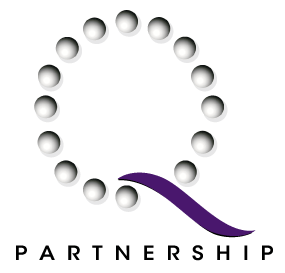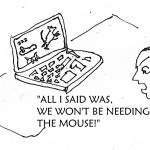At the time of writing of our last blog in this remote working series, titled Managing Employee Performance Remotely, many countries in Africa had yet to experience the second wave of the Covid-19 pandemic and its compounded impact on business. By the turn of the year, and progressively in 2021, many businesses across Africa will no doubt have had to grapple with the surge in local Covid-19 infections, fresh lockdowns and renewed business operating restrictions. Employees and business leaders alike have had to contend with an aggravated sense of uncertainty, fears regarding extended possibilities of infection, illness, and loss and the realisation that companies must brace for yet another long trudge through an ambiguous, difficult operating environment. It is not surprising that some of your employees may be feeling anxious and less motivated during these uncertain times. This directly impacts their quality of work and performance.
What is the one challenge that is top of the mind for many business leaders? Maintaining employee morale. Boris Groysberg and Robin Abrahams[1] of Harvard Business School asked 600 CEOs a pertinent question, “What is keeping you awake at night during this global pandemic?” One significant, multifaceted concern that emerged was how to keep employees motivated when their world is crashing around them. Their responses included: “Keeping morale and motivation up amongst employees while they are dealing with the stress of COVID-19 as well as parenting/schooling children while working from home. How can we be supportive while maximizing productivity? How do we help employees with work/life balance?” “How to keep people engaged and connected and OPTIMISTIC in appropriate measure while so many have so many competing personal and business and health and family issues right now.” (Harvard Business School Working Knowledge article of 8th October 2020 titled Keep Your Weary Workers Engaged and Motivated; https://hbswk.hbs.edu/item/keep-covid-weary-employees-engaged-and-motivated)
Evidently, employee motivation is intricately tied up with workforce productivity. In the absence of the custom-made work environment, it is imperative for remote workers to foster internal motivation.
Here we share some strategies on how to keep your employees motivated while they work from home. Many of these have been referred to in our earlier blogs in this Remote Working series. It is useful however to have them all summarised in one read for ease of reference.
In the Harvard Business Review article, 3 Ways to Motivate Your Team Through an Extended Crisis (https://hbr.org/2020/09/3-ways-to-motivate-your-team-through-an-extended-crisis) Anne M. Brafford and Richard M. Ryan[2] use a well-established theory of motivation called self-determination theory (SDT) to identify three main psychological needs that leaders can meet to help their employees stay engaged, confident, and motivated. These are: –
1. Relatedness
Now more than ever, employees need to feel cared for and have a strong sense of belonging to your organisation. How does one achieve such intrinsic feelings? Make time to listen to your employees’ perspectives and make them know that they are heard and valued. Acknowledge and validate the employees’ emotions as well as their reactions. (“I know it can be tough to stay focused right now, but we’ll figure it out together!”)
Don’t let the wall flowers get lost in the crowd. Acknowledge each member’s work and achievements to the extent possible. Emphasize that people’s contributions are unique and necessary; do not let good work go unacknowledged.
When problems arise, make sure to get full feedback from those involved. This helps you identify the biggest issues and obstacles, while strengthening connection and encouraging communication.
Communicate that you care about employees’ well-being, not just their productivity.
2. Competence
Employees need to feel effective and to experience growth. Holding employees accountable for achievable goals can improve performance, and motivational science also suggests that trust begets trust. Involve your employees in decisions where their input could be valuable to help maximize a sense of empowerment, progress, and ownership. Set up check-ins to discuss progress on individual goals regularly and create strategies to meet them.
3. Autonomy
Encourage autonomy and recognise that each employee carries responsibilities for achieving team objectives. Employees thrive on being empowered as authors of their actions with the power to make choices aligned with their own values, goals, and interests, as well as their team’s.
Encourage self-initiation and participation, to help foster a sense of autonomy. Perhaps ask, “What part of this project can you see yourself leading?”
Avoid controlling language (“Get this to me by tomorrow!”) and minimize coercive controls like unrealistic deadlines and constant monitoring of your employees. Instead, find ways to motivate them through encouragement and positive feedback, such as, “I know it’s a tight deadline, but having your skills on this team will be so helpful to our client.”
Be transparent by providing the rationale behind demands. People are more willing to put in their full effort when they understand why a given task is important.
Employees who feel unappreciated or coerced will, at best, half-heartedly comply with a boss’s orders without whole-heartedly committing to excellence. At worst, they will lose all sense of motivation and fail to meet goals and deadlines. By meeting the three psychological needs, leaders help employees be engaged and feel valued at work.
[1] Boris Groysberg is the Richard P. Chapman Professor of Business Administration at Harvard Business School. Robin Abrahams is a research associate at HBS.
[2] Anne M. Brafford is a former law firm partner, a consultant to the legal profession on individual and organizational thriving, and a PhD candidate in positive organizational psychology from Claremont Graduate University. She is the author of Positive Professionals: Creating High-Performing Profitable Firms Through the Science of Engagement. Richard M. Ryan is a psychologist and co-developer of Self-Determination Theory. He is a professor at Australian Catholic University, North Sydney, Australia and co-founder and chief scientist at Immersyve Inc.






